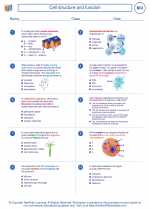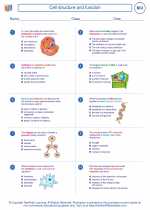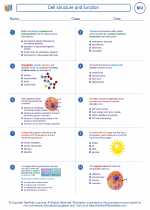Roots: Structure and Function
Roots are essential plant organs that serve several critical functions. They anchor the plant in the soil, absorb water and nutrients, and often store food reserves. Understanding the structure and function of roots is crucial in the study of plant biology.
Root Structure
Roots typically consist of several parts, including the root cap, apical meristem, root hairs, and vascular tissues. The root cap protects the delicate apical meristem as it pushes through the soil. The apical meristem is responsible for primary growth and the production of new cells. Root hairs increase the surface area for water and nutrient absorption, while the vascular tissues transport water and nutrients throughout the plant.
Functions of Roots
Roots perform various important functions, including:
- Anchorage: Roots anchor the plant in the soil, providing stability and support.
- Water Absorption: Root hairs and the root system as a whole absorb water from the soil, which is essential for various metabolic processes.
- Nutrient Absorption: Roots also absorb essential mineral nutrients from the soil, such as nitrogen, phosphorus, and potassium.
- Storage: Some plants store food reserves in their roots, such as starch and sugars, which can be used during times of low photosynthetic activity.
Study Guide
To effectively study roots, consider the following key points:
- Learn the different parts of a root (root cap, apical meristem, root hairs, and vascular tissues) and their functions.
- Understand the process of water and nutrient absorption in roots, including the role of root hairs and the movement of substances through the vascular tissues.
- Explore the adaptations of roots in different plant species, such as taproots, fibrous roots, and adventitious roots.
- Examine the importance of roots in plant development, including their role in establishing symbiotic relationships with mycorrhizal fungi.
[Roots] Related Worksheets and Study Guides:
.◂Biology Worksheets and Study Guides High School. Cell structure and function

 Worksheet/Answer key
Worksheet/Answer key
 Worksheet/Answer key
Worksheet/Answer key
 Vocabulary/Answer key
Vocabulary/Answer key
 Vocabulary/Answer key
Vocabulary/Answer key
 Vocabulary/Answer key
Vocabulary/Answer key
 Vocabulary/Answer key
Vocabulary/Answer key
 Vocabulary/Answer key
Vocabulary/Answer key
